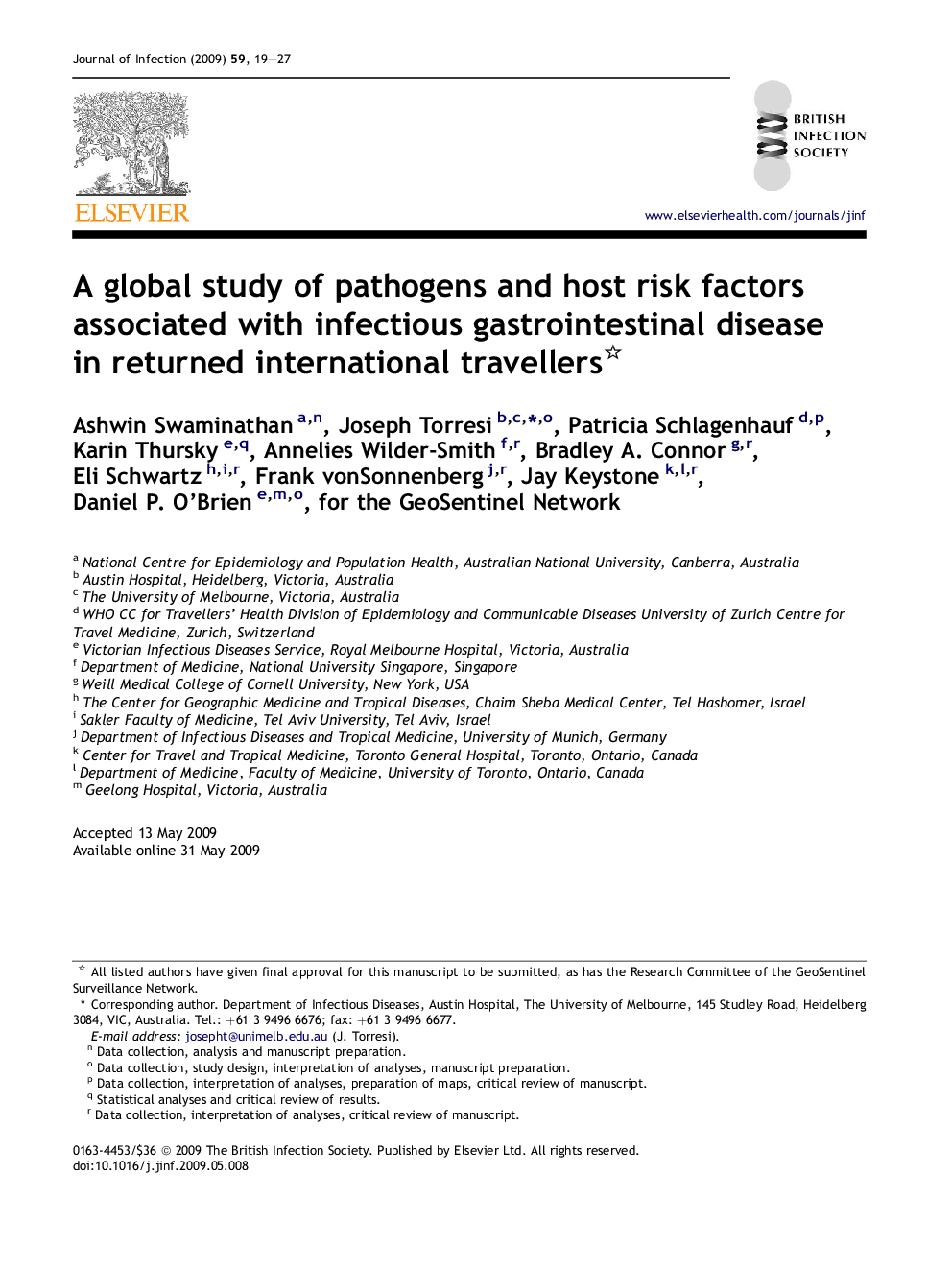| Article ID | Journal | Published Year | Pages | File Type |
|---|---|---|---|---|
| 3375269 | Journal of Infection | 2009 | 9 Pages |
SummaryObjectivesInfectious gastrointestinal disease (IGD) is a significant cause of morbidity in returned international travellers. This study aims to elucidate host and travel characteristics associated with IGD presentation, and describe the broad spectrum of aetiological pathogens responsible by geographic region of acquisition and reason for travel.MethodsWe analyzed demographic, clinical and microbiological data recorded for ill, returned international travellers presenting to GeoSentinel Surveillance Network sites globally during the period September 1996–December 2005.ResultsA total of 25,867 returned travellers were analyzed, of whom 7442 (29%) patients had a total of 8273 IGD diagnoses. Multivariate analysis demonstrated that IGD presentation was associated significantly with female sex (OR: 1.11; p = 0.001); younger age group; attending a pre-travel medical appointment (OR: 1.28; p < 0.0001); and travelling for the reason of tourism. Travelling for longer periods (>28 days) was associated with lower risk (OR: 0.93; p = 0.04). Of the 2902 clinically significant pathogens isolated, 65% were parasitic, 31% bacterial and 3% viral. Presentation of IGD by specific pathogen varied markedly dependent on geographic region of recent travel, and reason for travel.ConclusionsHost characteristics, region of travel and category of traveller, significantly impact on the relative likelihood of presenting with a broad range of pathogen-specific IGD.
